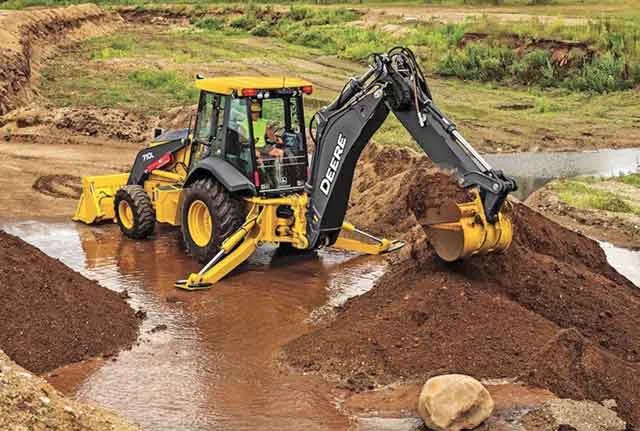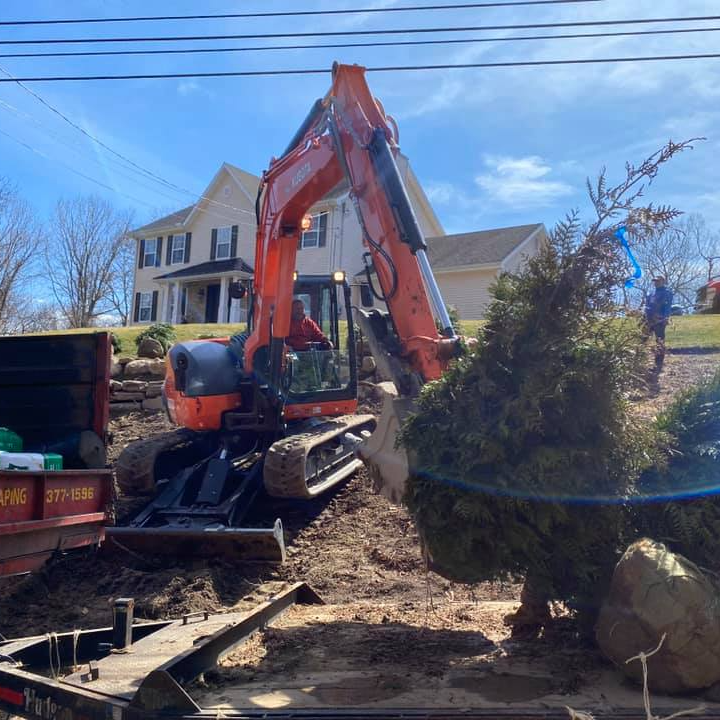Professional Septic Ohio - Trusted Septic Tank Experts in Ohio
Wiki Article
Comprehensive Excavation Techniques: Grasping the Fundamentals for Success
The careful planning, specific execution, and meticulous attention to detail called for in excavation projects demand a detailed approach that encompasses various basic elements. The real proficiency exists not simply in understanding these principles yet in effortlessly incorporating them to navigate the complexities of excavation tasks with finesse.Understanding Excavation Job Planning

The preliminary stage of any excavation job is the preparation stage, where critical choices are made that can considerably impact the outcome of the project. Understanding the project timeline, extent, and budget plan constraints is vital for creating an extensive excavation plan that ensures the task's success.
One secret element of excavation job preparation is the development of a thorough timeline that describes the series of activities, due dates, and milestones. By carefully taking into consideration all these variables throughout the preparation phase, excavation jobs can be performed successfully and properly, leading to successful outcomes - dump truck companies in ohio.
Dirt Evaluation and Site Evaluation
Conducting thorough soil analysis and website evaluation is a critical action in the prep work phase of any type of excavation job. Soil analysis entails establishing the structure, framework, and residential or commercial properties of the soil at the excavation site. This information is vital for understanding the dirt's bearing ability, dampness material, and potential for disintegration, which are essential aspects in establishing the excavation approaches and devices required for the job.Site evaluation goes beyond soil analysis and includes a wider assessment of the overall website problems. This analysis includes identifying any kind of possible threats, such as below ground energies, environmental problems, or unsteady terrain, that can affect the excavation procedure. By thoroughly assessing the website, project supervisors can develop effective excavation strategies that prioritize safety, effectiveness, and environmental management.
Making use of sophisticated modern technologies like ground-penetrating radar, dirt tasting, and drone surveys can improve the precision and effectiveness of dirt analysis and site examination. Spending time and sources in these initial steps can eventually conserve time and stop expensive delays or problems during the excavation procedure.
Tools Selection and Utilization
Effective excavation projects depend greatly on strategic equipment selection and application to ensure optimal efficiency and productivity. Selecting the right equipment for the job is essential in maximizing performance and lessening downtime. Aspects such as the kind of dirt, deepness of excavation, and task scope play a significant function in identifying one of the most appropriate equipment for the task at hand.
In enhancement to picking the ideal devices, appropriate application is vital to task success. Operators needs to be trained to manage the devices securely and successfully - lancaster excavation. Regular maintenance checks and timely repairs assist avoid breakdowns and make sure regular efficiency throughout the project
Security Steps and Regulations Compliance
In the check that world of excavation projects, prioritizing precaution and conformity with laws is vital to websites making sure a safe and secure and lawfully audio functional setting. Safety and security steps include a variety of techniques, consisting of conducting extensive site evaluations, applying proper signage and barriers, and providing sufficient safety and security training for all personnel involved in the excavation process. Adherence to policies, such as OSHA requirements in the United States, makes certain that the excavation job meets the required standards to secure employees, spectators, and the surrounding atmosphere.
Tracking Progress and Adjusting Strategies
Exactly how can predict managers effectively track the development of excavation tasks and adjust their approaches accordingly to enhance results? Monitoring development is necessary for ensuring that excavation tasks remain on track and fulfill target dates. Task managers can use various tools and strategies to track progress, such as everyday progression records, normal website examinations, and progressed monitoring technologies like drones and general practitioners tracking Discover More systems. By continuously checking the job's advancement, managers can identify any potential hold-ups or issues early and take aggressive actions to address them.
Final Thought
To conclude, understanding the fundamentals of thorough excavation techniques is important for the success of any kind of task. By understanding job planning, analyzing soil and website conditions, picking ideal tools, adhering to security laws, and keeping track of progression, task supervisors can ensure a smooth and effective excavation procedure. Carrying out these strategies will bring about effective outcomes and decrease possible dangers or troubles during the excavation project.
The first phase of any kind of excavation task is the planning stage, where important decisions are made that can significantly impact the outcome of the task. Comprehending the job timeline, range, and budget plan constraints is important for creating a detailed excavation plan that makes sure the task's success.
Exactly how can forecast managers effectively track the innovation of excavation tasks and adjust their methods appropriately to enhance results? By closely keeping an eye on progress and being ready to adjust strategies, project supervisors can improve the overall success of excavation projects.
By recognizing job preparation, assessing soil and website problems, picking proper equipment, complying with security regulations, and checking development, project supervisors can make certain a reliable and smooth excavation process.
Report this wiki page